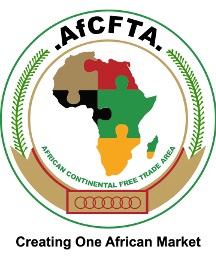The agreement aims to reduce all trade costs and enable Africa to integrate further into global supply chains – it will eliminate 90 per cent of tariffs
Launched on 1 January the African Continental Free Trade Area (AfCFTA) agreement will create the largest free trade area in the world measured by the number of countries participating. The pact connects 1.3 billion people across 55 countries with a combined gross domestic product (GDP) valued at $3.4 trillion. It has the potential to lift 30 million people out of extreme poverty but achieving its full potential will depend on putting in place significant policy reforms and trade facilitation measures.
The agreement aims to reduce all trade costs and enable Africa to integrate further into global supply chains – it will eliminate 90 per cent of tariffs, focus on outstanding non-tariff barriers, and create a single market with free movement of goods and services. Cutting red tape and simplifying customs procedures will bring significant income gains. Beyond trade, the pact also addresses the movement of persons and labour, competition, investment, and intellectual property.
The scope of AfCFTA is sizable. The agreement will reduce tariffs among member countries and cover policy areas such as trade facilitation and services, as well as regulatory measures such as sanitary standards and technical barriers to trade. It will complement existing subregional economic communities and trade agreements in Africa by offering a continent-wide regulatory framework and by regulating policy areas, such as investment and intellectual property rights protection, that so far have not been covered in most subregional agreements in Africa.
According to the World Bank AfCFTA can provide a spark for the region. By 2035, it estimates that implementing the agreement would contribute to lifting an additional 30 million people from extreme poverty and 68 million people from moderate poverty. Real income gains from full implementation of the agreement could increase by 7 percent, or nearly US$450 billion. As African economies struggle to manage the consequences of COVID-19, AfCFTA can provide an anchor for long-term reform and integration.
“The AfCFTA is a critical response to Africa’s developmental challenges,” His Excellency Wamkele Keabetswe Mene, Secretary General, who is speaking at Africa Oil Week to be held in Dubai between 8th and 11th of November says. “It has the potential to enable Africa to significantly boost intraAfrica trade and to improve economies of scale through an integrated market. It has the potential to be a catalyst for industrial development, placing Africa on a path to exporting value-added products and improving Africa’s competitiveness both in its own markets and globally. It also sends a strong signal to the international investor community that Africa is open for business, based on a single rulebook for trade and investment.
“The global economy is on the brink of a new industrial revolution, driven by new-generation information technologies such as the Internet of Things, cloud computing, big data and data analytics, robotics and additive manufacturing. All of this presents challenges and opportunities for the AfCFTA.”
Building on a rich resource base
One of the industries that can benefit from AfCFTA is the energy sector, both the traditional oil and gas operators as well as the growing number of renewable enterprises. Like the rest of the world Africa is embarking on an energy transition but with oil and gas and mineral resources accounting for more than 75 per cent of the continent’s exports and with the potential for growth in oil and gas high, it will still have a role to play in the short and mid-term. Estimations vary but recent figures put Africa’s proven gas reserves at 487.7 tcf with proven oil reserves in the region of 125 billion bbl. However, trade barriers such as high import tariffs have left many African countries vulnerable to the international market, which resells its resources at higher prices.
The AfCFTA will potentially end this practice as oil and gas producing countries will benefit from global markets as well as the domestic market. Focusing more on growing intracontinental oil and gas trade will give countries autonomy to govern their international trade agreements, which have often left African countries on the losing end. Analysis indicates that the AfCFTA will make room for the generation of GDPs that can positively impact African economies’, create employment, and impact infrastructural development. While this is a necessary benefit that will positively impact Africa, it is already a continent plagued by corruption, which has resulted in the delayed development of essential infrastructure required to facilitate the ease of trade through the AfCFTA.
Driving the energy transformation
For African countries, the green energy transition presents both opportunities and challenges. On the one hand, the huge energy deficits in production and access, combined with abundant renewable energy resources, can underpin a relatively rapid and encompassing shift to green energy. On the other hand, challenges related to access to finance, investment risk and the absence of needed technical and human capacities may impede this transition.
According to the International Energy Agency (IEA), over 600 million people in Africa have no access to electricity and a further 900 million people cannot access clean cooking energy. These figures do not however tell the entire story as there is significant variation across countries. For example, in South Sudan the percentage of the population with access to electricity is as low as one per cent while countries such as Egypt, Algeria, Libya and Tunisia can boast 100 per cent access. The South African Institute of Economic Affairs claims that this disparity is shaped by several factors including state capacity, quality and effectiveness of existing policy and institutional frameworks, and the ability of countries to tap into global knowledge and resources.
In its policy brief ‘Accelerating Green Energy Transition in Africa Through Regional Integration’ the SAIIA states that individually, most African countries lack financial, technical, and human capacities needed to fully implement a green energy transition. This indicates an important role for some collaboration, both between African countries and with external partners, to enable Africa to address its energy deficit. While many modalities for financing African green energy transition have been highlighted in the policy discourse, two recent trends seem promising in fast tracking the transition process. First is the AfCFTA, which promises to build regional market for goods and services, with free movement of persons and investment. By consolidating small, poor, and fragmented African countries into one strong market, the agreement can change the dynamics in terms of access to funding, human capital, and technology for the green energy sector. The second important trend is the evolving Europe-Africa relationship.
A regional approach to addressing the African energy deficit is not new, as regional power pools already exist, through which African countries manage power generation and distribution. The AfCFTA directly and indirectly addresses these challenges, which will both improve the prospect of regional power pools succeeding, as well as greater acceleration towards green energy. First, the AfCFTA intends to scale investment in regional infrastructural projects and given that renewable energy is a significant component of regional power pools, this can accelerate the transition to green energy. The second phase of negotiations is centred on protocols for cooperation on investment, intellectual property rights and competition policy. This protocol provides for national and continental investment as well as support for existing investment promotion agencies like the Programme for Infrastructure Development in Africa (PIDA).









